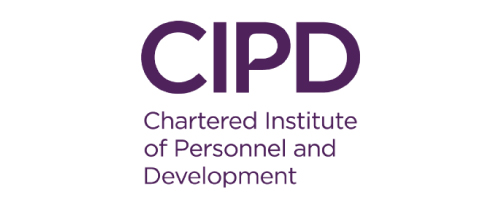
Payroll and HR in Finland
The International HR & Payroll Company
That Speaks Your Language
IRIS FMP will simplify payroll and HR in Finland. As a recognized, trusted global payroll and HR specialist, we have 88 in-country teams to help ensure your international employees are paid on time, every time.
Navigating the complications associated with global payroll and HR in Finland is not always easy without specialist support. As compliance is always a top priority for businesses, we can support you during a global expansion. With the differing laws, cultures and regulations, it can feel demanding to stay on top of everything. Fortunately, we are here to help. We offer:
Looking for Payroll and HR Services?
Payroll in Finland
We take away the complexities of global payroll and manage everything, such as pay or benefits, and more. Through our payroll support, your international workforce will be paid accurately, every time.
HR in Finland
Leading companies trust in our HR services, as we support your global employees with matters of legislation and compliance.
Finnish Employment Law Compliance
We will help you to compliantly onboard new talent into your organization. As an in-country specialist in Finland, we can help with contracts, policies, handbooks and more.
Global Payments Services
We offer compliant, global payment services for all businesses. We also make your cross-border transfers practical and cost-effective.
Jump to section
Location Data
- Name
Finland
- Region
- Europe (Northern Europe)
- Population
- 5530719
- Calling Code
- 358
- Capital
- Helsinki
- Timezone(s)
- UTC+02:00
- Timezone in Capital
- (europe/helsinki) 11:25 PM
- Currency
- Euro (EUR)
$1 = €0.92 - Main Language
- Finnish(suomi)
- Other Business Languages
- English
- Tax Year Start
- 1st January
- Tax Year Start
- 31st December
Details correct at time of publication. You should not rely on these details without first seeking professional international advice.
A trusted advisor for global expansion
We support businesses in 135 countries worldwide to reach their expansion goals.
Global Expansion in Finland
Of Finland’s 5.5 million inhabitants, around 900,000 are employed by small and medium businesses. The country’s main exports are paper, machinery, oil, and vehicles. While Finnish is the country’s official language, in business English is the primary language – in fact it is the first language of some.
Located in Scandinavia, around one third of the country is actually within the Arctic Circle. Finland borders Sweden, Norway, and Russia, and in fact it’s possible to journey from Helsinki to St Petersburg in around 4½ hours. The country’s main international airport is Helsinki (airport code: HEL), which has direct connections to more than 150 worldwide destinations.
In addition to taking into account the Finnish lifestyle and working culture, any business owners looking to expand there must also navigate local employment law. HR and payroll in Finland has its own unique challenges relating to personal and corporate tax, administrative responsibilities, and employee benefits. The team at IRIS FMP are well-versed in international employment, and can offer guidance in this area to help your business expansion run seamlessly.

Employer Must-Dos
Employers in Finland must make sure that the following administrative forms are submitted:
- Corporate Income Tax return within four months of the end of the accounting period
- Financial statements (NB. these become public documents)
- Handling fee of €85 for late financial statements
Payroll in Finland
What tax considerations are there?
Finland’s residents are taxed on their worldwide income, according to how much they earn. Those earning less than €17,600 annually are exempt from tax; then it sits at a flat rate plus a percentage of additional earnings. The maximum amount is €10,413 + 31.25% on all income after the first €76,100.
In addition to the national tax, each municipality (there are 311 municipalities in Finland) also has its own local tax, between 16.5 and 22.5%. There are also Church taxes of between 1 and 2.2% for residents who are members of the Orthodox, Evangelic Lutheran, or Finnish German Church in Finland. There is also a Public broadcasting tax of 2.5% which applies to anyone over 18, earning more than €14,000.
Another tax to be aware of is that which applies to foreign experts; that is foreign workers earning an income from a Finnish source, whose work requires specific expert knowledge. These foreign workers are taxed at a rate of 35%, whereas other foreign workers are taxed at the same rate as Finnish residents.
Corporate Income Tax (CIT)
Corporate Income Tax in Finland is 20%. This applies to both Finnish resident companies and permanent establishments (PEs) of non-resident companies. The latter of these is taxed on any worldwide income that derives from the work of the PE.
Businesses are also required to pay a public service broadcasting tax. This is based on the company’s taxable income, which must be more than €50,000 for the tax to apply. The annual charge is either €140 or €140 + 0.35% of all income over €50,000. The maximum amount a company would pay is €3,000.
HR in Finland
What are the regular working hours in Finland?
Normal working hours in Finland are between 8am and 5pm, with either one or two hours for lunch. According to Finland’s Working Hours Act, regular hours must not go over 40 per week and 8 per day. Most people work a 7.5 hour day and a 37.5 hour week, like many European countries. Overtime must be paid at a higher rate. The first two hours (per day) will be paid at rate of an additional 50%, and anything over this is paid at an additional 100%. Sunday work should be paid as double time.
Vacation, maternity and sickness
Finland, and much of Scandinavia, is known for leading the way when it comes to work/life balance. As such, it will come as no surprise to learn that holiday allowance for employees in Finland is generous. It’s accrued at a rate of two days per month during the first year of employment, and 2½ days per month after that. The holiday year runs from 1st April to 31st March, and holiday season is from 2nd May to 30th September. Throughout most of Finland employees must take their holiday within this timeframe, however the final decision is up to the employer. In addition to this, there are 13 public holidays throughout the year.
Maternity leave in Finland is a maximum of 105 days, and it can begin between 30 and 50 days before the due date of the child. Maternity and paternity allowance is paid at a minimum of €27.86 per day for those with a gross annual salary of less than €11,943, and a maximum of €116.99 per day for those with a gross annual salary of more than €60,000.
Anyone who has worked for a company for more than one month in Finland will be paid their full salary while off sick, for up to nine days. Those who have worked for less than a month are entitled to 50% of their salary for this time. In the event that an employee has over nine days off sick, as long as they are a resident who has paid into the Finnish social security scheme, they can apply for sickness allowance.
Termination
In the event that either party wants to terminate their employment contract, a minimum notice period of 14 days must be adhered to. Employees who have worked for over twelve years at a company must be given six months notice of termination. There is no legal obligation to pay a severance.

Learn more about international payroll
Discover more about employment law surrounding payroll across the globe with our guide to everything from employment benefits to income tax.
IRIS FMP’s Finnish Payroll and HR Solutions
Anyone looking to expand their business in Helsinki, Espoo, Tampere, or another industrious Finnish city, need to take time to properly research local legislation surrounding HR and payroll. The experts at IRIS FMP can assist you through your journey, making sure you stay 100% compliant in all aspects of employment. We are able to provide the following services, among others;
- Multi-currency payroll
- Hard and soft-copy payslips
- Payroll processing
- Sickness processes
- Parental leave administration
- Holiday pay
- Pension payments
- Payroll audits
- Payroll reconciliation
- HR process audits
- HR consultation
- Translation services
- Tax reporting

IRIS FMP can guide you through Finland’s HR and payroll laws
We are adept in navigating the world of international payroll, and can offer you the advice and expertise you need to ensure you stay complaint with local law.





















